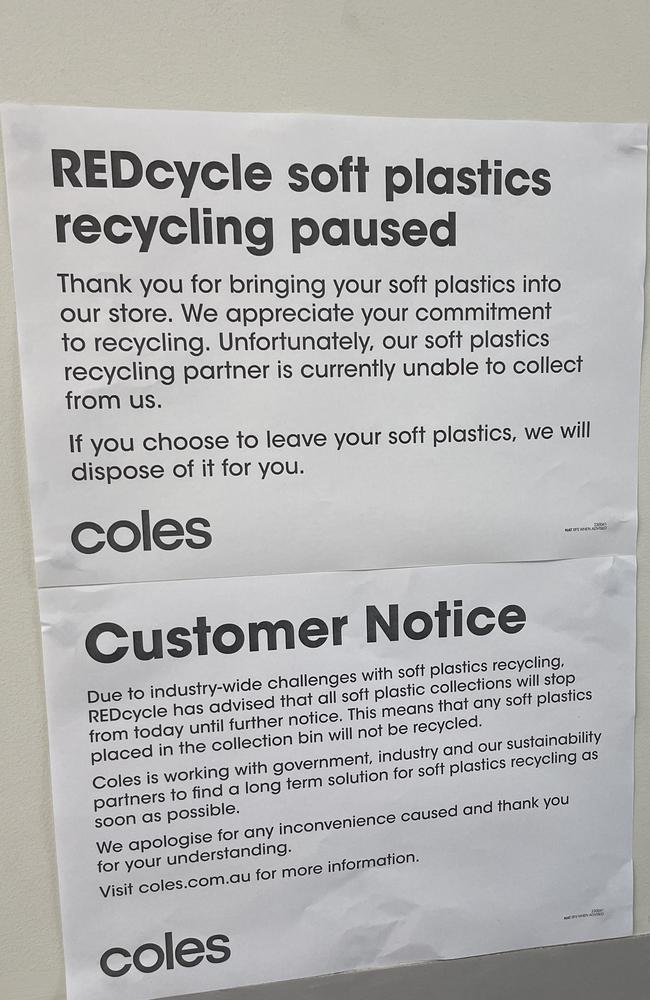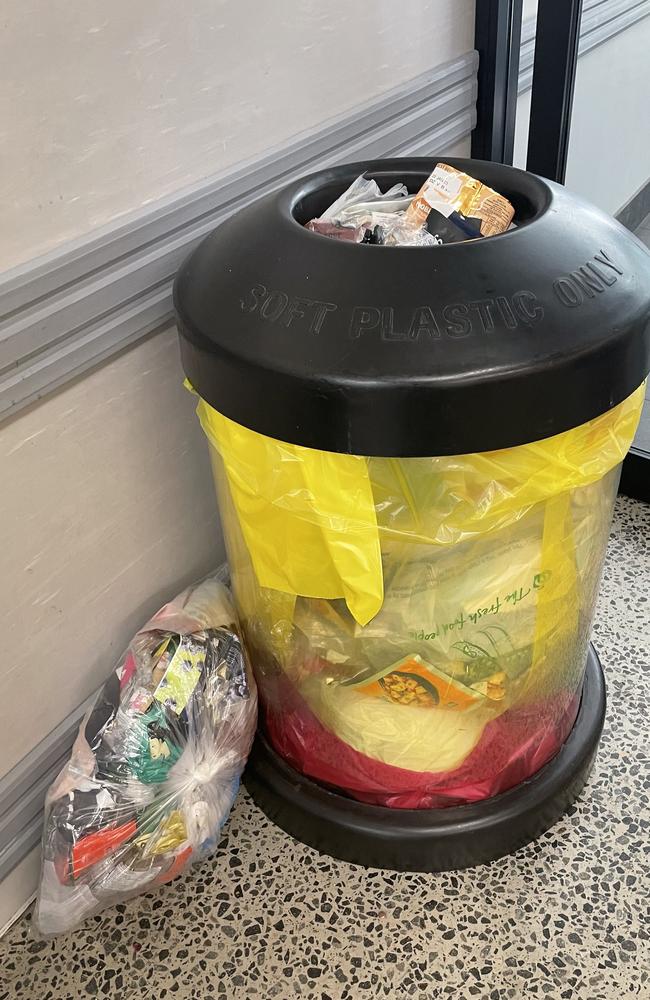Single fire behind supermarket recycling scandal
How one industrial fire entirely collapsed a major plastic recycling program used by Australia’s two largest supermarket chains.
A Melbourne factory fire has all but destroyed Australia’s ability to recycle soft plastics.
Coles and Woolworths have recently ended a partnership with a company that offered shoppers recycling points for their soft plastic waste five months after the blaze.
A cascading sequence of events since June now means everyday Australians have little to no option to recycle their soft plastics.
REDcycle, collection points at Coles and Woolworths stores, offered Australians a service to drop off their unwanted soft plastics to be recycled instead of letting them go into landfill.
But since the June factory fire at a Close the Loop facility, the largest volume offtake partner of REDcycle, the waste has been piling up.
REDcycle was Australia’s program that invited consumers to drop off soft plastics for recycling – and with its means of doing so offline until at least next year, so too is much of the nation’s capacity to recycle the waste.
Environment Minister Tanya Plibersek described the demise as “unfortunate”, but hoped “big supermarkets” would find the fix.
Want to stream your news? Flash lets you stream 25+ news channels in 1 place. New to Flash? Try 1 month free. Offer available for a limited time only >

“I expect Coles and Woolworths to step up and indicate how they will deal with soft plastic recycling. We’re happy to work with them to achieve this,” she said.
NSW Environment Minister James Griffin has been slightly more proactive than his federal counterpart, hinting at an interstate intervention.
“I have asked the NSW Environment Protection Authority to immediately work together with the Victorian EPA and Recycling Victoria to better understand the challenges impacting REDcycle’s operations,” he said.
REDcycle collected about 7000 tonnes of soft plastic each year and was almost entirely dependent on the Close the Loop factory to convert the waste into usable materials.
But it all came crumbling down in June when a fire on the production line at the outer Melbourne suburban factory put it out of action.

The inferno burnt for five hours, and it took over 50 firefighters to bring it under control.
In a market announcement shortly after, Close the Loop said it would return to operation within six months – that date has since been pushed back to mid-2023 as part of an expansion.
Close the Loop CEO Joe Foster detailed the immense lack of soft plastic recycling infrastructure in Australia.
“They were dependent on us to move volumes. The fact that we found the solution [to recycling soft plastics] many years ago was obviously a very good outcome,” he said.
“Nobody in the industry wants the post-consumer, heavily contaminated material, whereas we can take it on.”
During that time, REDcycle continued to accept huge amounts of waste, which it no longer had means of recycling, deciding to conceal the issue from Coles and Woolworths, with everyday recyclers none the wiser.

REDcycle is yet to disclose how much soft plastic remains stockpiled, nor has it explained its decision to omit information about the breakdown in its recycling capacity to its partners and the public.
“There are no recycling options available for soft plastic in Australia,” it did, however, concede in a statement.
“REDcycle is storing the material, at their own expense, to keep it out of landfill.”
“There wasn’t a secret or official suspension of recycling activities. REDcycle has repeatedly tried to find alternative recycling solutions to fix the problem.”
REDcycle says it will process its stockpiled soft plastic when Close the Loop returns to operation.
Soft plastic waste is considered one of the most challenging materials to recycle because of varying types of plastic and contamination.





